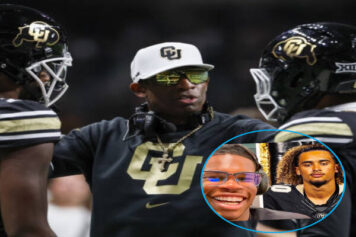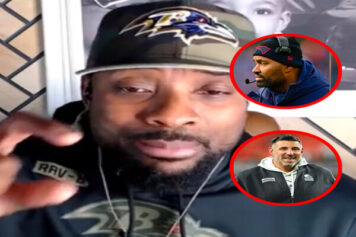Brian Banks is a name you may not know, but probably should. A standout high school football athlete, Banks verbally committed to play for USC in 2002. That summer, he was falsely accused by Wanetta Gibson of raping her in a high school stairwell.
Facing a potential sentence of 41 years to life, Banks took a plea deal of five years prison time, another five years of probation, and was required to register as a sex offender. At age 18, his dreams of becoming a star linebacker in the NFL were gone before they became a reality.
Near the end of his probation, Gibson reached out to Banks on Facebook and eventually admitted to falsely accusing him. Using this new information, Banks was able to get his conviction overturned, ten years after it had been imposed.
While Banks ultimately received tryouts with a few NFL teams, his football opportunities were essentially over due to the ten years lost while fighting a false conviction.
Life outside of football was equally difficult: he was forced to live with friends or relatives and had trouble finding gainful employment. Banks now works with the California Innocence Project, the group that assisted in his effort to be exonerated.
Banks story is now being made into a movie and reminds me of another film I recently viewed.
True Conviction is a documentary about three men who were wrongfully convicted for crimes they did not commit. Some of them spent over twenty years in prison and now work to free or exonerate others who were also wrongfully convicted.
Like Banks, it was a powerful story and makes one ask What if?
What if these men had not been wrongfully convicted? What could their lives have become? What potential was lost because they were incarcerated for significant periods of time? How many athletes are languishing in prison who would otherwise be putting up record numbers on a court or field but for a wrongful conviction?
In films like True Conviction, Ava DuVernays 13th, and the upcoming Brian Banks biopic, issues of mass incarceration and the school to prison pipeline are brought to the forefront. Systemic injustice in the legal system leads to a disproportionate number of people of color, often men, being incarcerated.
What is less discussed, however, is who these men and women were and what they have lost. This is especially poignant for those who have been wrongly convicted and spend years working toward their freedom.
In one scene of True Conviction, a newly released man is dumbfounded that pictures and video could be taken on a handheld device from which you could also call people. He had been imprisoned since before cell phones existed for a crime he had not committed.
The reintegration into society for those released from prison is difficult. Finding work, establishing credit, reconnecting with family members are all tasks that sometimes prove insurmountable.
It is especially unfortunate for those like Brian Banks, who paid a debt to society that they did not owe.



